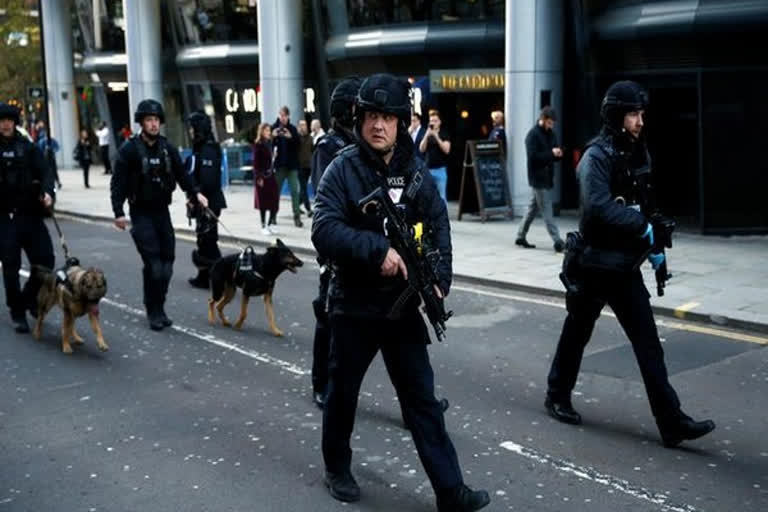New Delhi: Usman Khan, the convicted terrorist who stabbed two people to death in a terror attack at the London Bridge earlier this week, had plans to carry out terror attacks in Kashmir, reveals a 2012 judgment pronounced by a British court over his role in the 1990 London Stock Exchange bombing.
Eight years prior to the incident on the London Bridge which brought the city to a standstill, British national Usman Khan who is believed to have spent parts of his late teens in Pakistan had been sentenced to sixteen years in prison in 2012 for his role in the London Stock Exchange bombing, but was released in December 2018.
At the time of his sentencing in 2012, a British judge had warned that Usman Khan and Nazan Hussain attended Madrassa and were themselves keen to perform acts of terrorism in Kashmir. When they and others who had been recruited and trained in the Madrassa and had experience in Kashmir, they may return to the UK and perform acts of violent terrorism here.
Read Also: IS claims responsibility for London terror attack
"The long monitored discussions of Usman Khan about the madrassa and his attitudes towards it and terrorism are highly eloquent of the seriousness of their purpose," the judgment read.
The judge went on the say that the stated plan was a serious, long term, venture in terrorism the purpose of which was to establish and manage a terrorist training facility at the Madrassa, to fundraise for its construction and operation by the use of various means including fraud, and to recruit young British Muslims to go there and train, thereafter being available to commit terrorism abroad and at home.
According to the British media reports, Khan-- a British citizen born in the UK -- left school with no qualifications after spending part of his late teens in Pakistan where he lived with his mother when she became ill. On his return to the UK, he started preaching extremism on the internet and attracted a significant following.
Read Also: UK police: Bridge attacker had been jailed for terror crimes
In January 2012, Khan pleaded guilty to engaging in conduct in preparation for acts of terrorism contrary to section 5(1) of the UK's Terrorism Act 2006. Khan was among nine men charged with conspiracy to bomb high-profile London targets in 2010. At that time, a hand-written target list found by the British police counter-terror force at one of the defendant's homes listed the names and addresses of the London mayor Boris Johnson, the American Embassy and the London Stock Exchange.
Khan was sentenced to detention for public protection with a minimum custodial term of eight years -- a sentenced designed by UK authorities to protect the public from serious offenders whose crimes did not merit a life sentence.
On December 15, 2010, Khan had been monitored by the UK authorities in conversation about how to construct a pipe bomb from a recipe referred to in an Al Qaeda publication.
Authorities also heard Khan seeking to radicalize another male and making clear his intentions to travel abroad to a training camp that outwardly appeared to be a madrassa. The court noted that Khan expected only victory, martyrdom or imprisonment.
Khan had been living in the Staffordshire area of central England, the police said, where searches are still being carried out in connection to the attack. The violence in London erupted less than two weeks before Britain holds a national election. In the wake of the incident, major political parties including Labour Party and Conservative Party have temporarily suspended campaigning for the December 12 election as a mark of respect for the victims in the attack.



